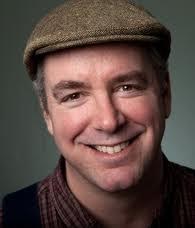 Charles Leggett is a professional actor based in Seattle, WA, USA. Recent publications include FRIGG Magazine, Graze, Latchkey Tales, Form Quarterly, Firewords (United Kingdom), Southword Journal (Munster Literature Centre, Cork City, Ireland), and Punchnel’s. Others include The Lyric and Measure: A Review of Formal Poetry; his long poem “Premature Tombeau for John Ashbery” is an e-chapbook in the Barnwood Press “Great Find” series LAYOVER: EMPRESS HOTEL by Charles Leggett outside Kuala Lumpur This building rises nakedly up from rows of yellow three-story flats like an elegant wart from the crown of a dentist’s hovering knuckle. Lurching half-hour’s drive from the airport; lobby and halls suffused in prayer chants piped in through a subtle P.A. system. “Help in Time of Need” leads off the Gideons’ list of “Suggested Readings” from the worn bible they’ve “Placed” —next, as it happens, to The Teachings of Buddha—in what I’ll call the drawer of need. Now, techno dance beats debouch from a stoop below, across the street, next door to Naeshan Trading, where men in t-shirts are hunched at card tables under a naked bulb’s margarine light. An equivocal phrase, “drawer of need”: drawn as a bath is drawn—immersion; or sketched, in lines of a face—mundane, sweet, straining to become familiar in a nakedness dressed to the nines. THE AGENCY by Charles Leggett Out here mumbling Poor Old Jason Bourne, his third installment warm still in the tray. Turns out he’d signed up for it after all; he’d plunked his dog tags down upon the table like hotel keys at check-out. Landlady’s stained, forsaken particle board stacked against the disused concrete planter, raindrops licking coldly at everything (two hours sitting on my ass inside’s not helping with the cold.)—but it’s the clouds of smoke that catch my eye. The hill’s tilt south down Franklin, freeway noise uncoiling, coiling; rocking back and forth on balls of chilly feet, not even sitting. Stealing the pleasure of smoke. The waters Poor Old Jason Bourne began these movies in were cleaner. They didn’t give Matt Damon time to act, much. His Bourne takes action, as if that were all the world had left to offer him. Damon simply has to be precise, to be himself the narrative. They put that Poor Old Jason Bourne up on a rooftop at the movie’s end, allowing the breathless agent who has somehow managed to corner him the choice of…well, of not shooting him right away. Bourne’s had his brief and flashback-ripe reunion with Albert Finney’s basso spymaster: a version of Polonius stripped bare without the foibles or loquaciousness —albeit the pomposity remains. (Polonius occurs because my mother reminded me of him, three decades past, advising me about my parentage.) He doesn’t even have panache enough to die, this humorless, this dry, on-task, hermetic, old Polonius, his droll pronouncements not a bit less obvious for all their rumbling portent. A spat of editorializing, then, up on the rooftop, as to what’s been asked of these two men by their superiors throughout the years; then Poor Old Jason Bourne (or whatever name does manage to be his) jumps off into the river. I still can hear in the tenor of her voice, and see by angles that her face described, the grace that conversation long ago had asked of her. That it would be all right, if I did want to know. That I was free to seek the persons out. Her tenderness, in saying that their feelings, hers and Dad’s, were not what mattered—not against the weight of that inquiry into a frightened woman (likely younger, giving birth, than I was when my mother spoke to me) who carried me nine months and would have given me a different name. STORY I TOLD MY MOTHER ON HER DEATH BED
by Charles Leggett “What happened?” comes a child’s voice ringing pure From out among the patrons. All can hear. And I am Prospero (a summer tour Of parks), with beard and scepter, arms both flailing From out a caftan, stormily regaling My daughter with the tale of being thrown From power to this “full poor” life she’s known. And there’s a little present Shakespeare’s left, A shortened line of verse, to catch one’s breath-- “What happened?” comes the child’s voice ringing then. “What happened?” comes the same voice ringing when Not ninety minutes later—all forgiven, At revels’ end—falls one last grateful silence: My daughter wending toward the changing tents With old Alonso’s son. And I imagine How all upon that island—“salvage,” human Or sprite; betrothed, bewildered (or a touch Besotted)—at the end could say as much: No longer captive, soon “reliev’d by prayer,” What happened ringing through the solemn air. I told my mother so, not two weeks later. Could say as much. And could not say it better. —Wooden O Free Shakespeare in the Parks, Seattle, WA, August 2001
0 Comments
Leave a Reply. |
Categories
All
|
 RSS Feed
RSS Feed